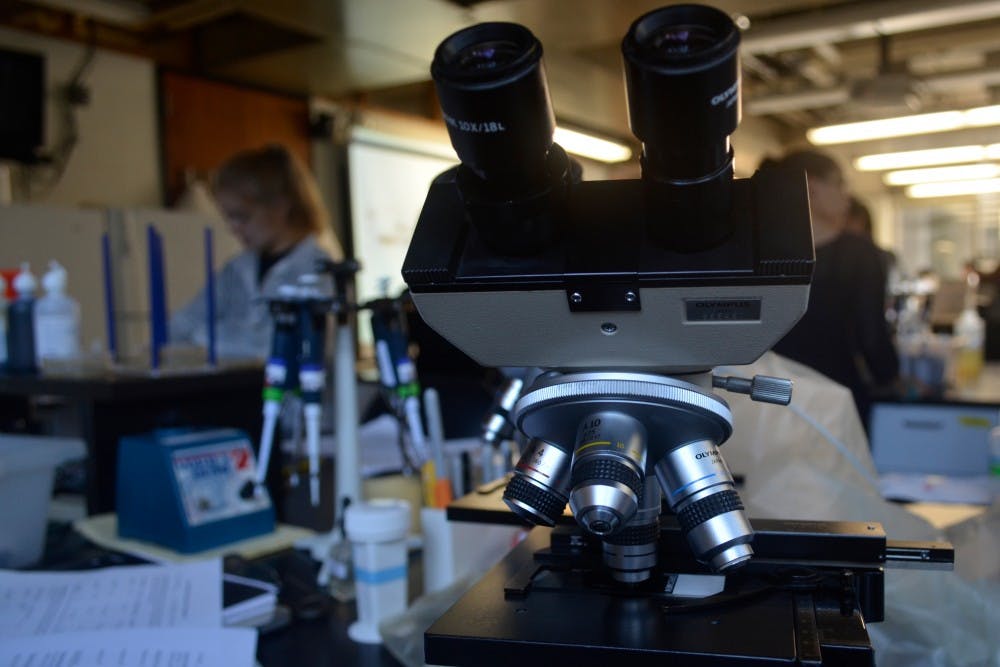
Thousands are expected to march through Philadelphia tomorrow for one reason: science.
Members of the Penn community plan to participate in the March for Science which will be held for the first time on Saturday in nearly 500 communities worldwide.
These demonstrations hope to advocate for the federal funding of science and the use of scientific evidence in policy making.
Kristen Coakley, assistant director of the Science Outreach Initiative, is on the Diversity and Inclusion Committee of the Philadelphia branch of the movement and hopes to spark nonpartisan support for science.
"As far as I’m aware, this is the first time any public demonstration in support of science in general has happened,” she said. “But I think it’s been an effort that’s been building for quite some time in the science community.”
Ruby O’Lexy, a postdoctoral fellow at Penn, said she will be participating in the march partly out of economic concern.
“Many labs run on federal grants,” O'Lexy said. “With [Trump’s] proposed budget, many people are panick[ing] about science not getting any money next year.”
Postdoctoral fellow Jason Diaz also expressed concerns over cuts to federal funding of science.
“Trump was suggesting a 20-30 percent budget cut for the National Institutes of Health, which funds basically all of biology in the U.S.,” he said. “The fact that he is cutting this tells me that he doesn’t understand why science is important.”
Diaz said he believes the Trump administration's budget proposal, which was released last month, convinced many people to take part in the march.
But not everyone is on board. O’Lexy said some Penn professors might choose not to participate due to concerns about engaging in politics.
“I think if there’s any conflict about it, it’s that scientists aren’t always sure how partisan to be or how politically active to be,” she said. “I think our preferred mode is to not politicize science.”
Kimberly Gallagher, a professor of biology at Penn, is one faculty member who will be at the march.
“I don’t know how successful the march will be or if it will have any impact,” she said. “But I’m mostly going out of personal and professional curiosity.”
Gallagher noted that some scientific organizations associated with Penn are endorsing the march — though these groups had concerns about repercussions as well.
She cited the example of the American Society of Plant Biologists.
“ASPB was one of the later groups to sign on and endorse the march,” she said. “I think they were worried about partisan politics and were concerned that it might not be terribly productive.”
O’Lexy, who is part of the Science Policy Committee for ASPB, said the committee debated for weeks whether they should formally endorse the march.
“The people who were against it thought they didn’t want to burn this bridge if we have a new Congress, and we have new people on these committees," she said. "Will we want to work with them in the future? And will this penalize us down the road?”
O'Lexy added that supporting science is not a partisan issue but linking support for science to opposition towards the current administration may antagonize political representatives.
“If we go out there and say we’re just anti-this administration, and you have a congressman whose constituents support this administration, now you’re forcing them to choose between supporting science — which should not be so controversial — and picking sides," she said.
The Daily Pennsylvanian is an independent, student-run newspaper. Please consider making a donation to support the coverage that shapes the University. Your generosity ensures a future of strong journalism at Penn.
Donate




